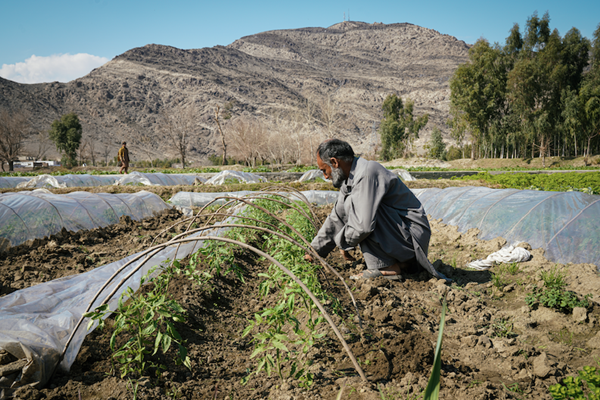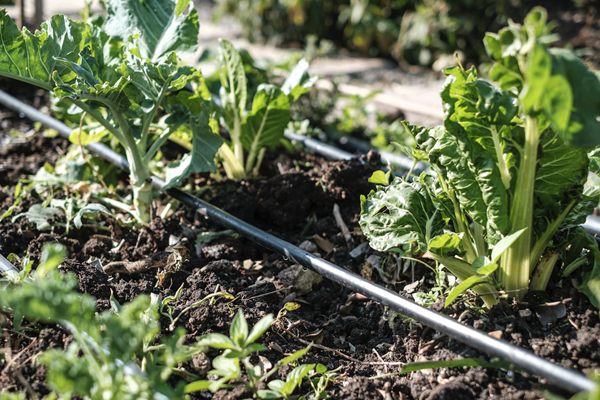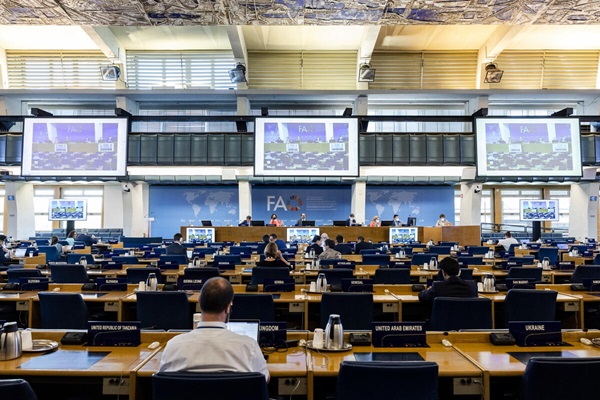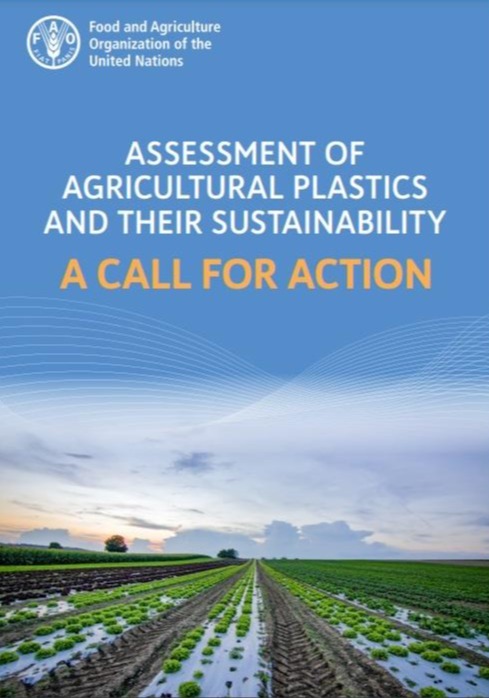Sustainable use and management of plastics in agriculture
Over the past decades, plastic has become an integral part of agriculture. Plastics are used for everything from seedling trays and irrigation tubing to mulch and livestock feed bags. While these plastic products can enhance crop yields, reduce water demand, and decrease the use of agrochemicals, they also lead to environmental degradation and long-term soil contamination. The accumulation of plastic waste in agricultural lands harms soil health, disrupts ecosystems, and poses a growing challenge to sustainable farming practices.
Publication
Facts and figures
How FAO supports

Furthering the knowledge base to better understand benefits and trade-offs of using plastics in agriculture
The Organization continues working on the assessments of national and international frameworks and systematic mapping of the existing knowledge gaps. In addition, FAO contributed to several global studies and assessments on the distribution and impacts, criteria for problematic plastic products and practices, scientific and technical gaps, and microplastics.

FAO Voluntary Code of Conduct for the sustainable use and management of plastics in agriculture
In response to the recommendations of the 28th Session of the Committee on Agriculture (COAG 28), subsequently endorsed by the 171st Session of the FAO Council and the 43rd Session of the FAO Conference, FAO has carried out inclusive and geographically representative consultations with FAO Members and a wide range of stakeholders towards the development of the Voluntary Code of Conduct for the sustainable use and management of plastics in agriculture.

Engagement in the work of the Intergovernmental Negotiating Committee (INC) to develop an international legally binding instrument on plastic pollution, including in the marine environment
FAO engaged as an Observer in all the four meetings to date of the INC to ensure the new instrument balances benefits and trade-offs and sustainability aspects of plastics used in the food and agriculture sector and reflect upon perspectives of relevant stakeholders, including smallholder farmers.
In 2023, FAO and the International Atomic Energy Agency (IAEA) have jointly launched a 5-year Coordinated Research Project to assess the fate and environmental impact of plastics and microplastics in agricultural soils using isotopic techniques.
A number of important publications were released on plastic food packaging and its impacts on food safety, including: "Thinking about the future of food safety – A foresight report"; "Microplastics in food commodities: A food safety review on human exposure through dietary sources"; "The impact of microplastics on the gut microbiome and health - A food safety perspective" ; “Microplastics in fisheries and aquaculture: status of knowledge on their occurrence and implications for aquatic organisms and food safety”.
The consultation process entailed an Informal Briefing for FAO Members in May 2023, a Global Expert Meeting in June 2023, followed by multi-stakeholder consultations for six regions, which ended at the end of October 2023, and included both Members and other stakeholders. To ensure wider outreach, FAO launched an online written consultation on the Global Forum on Food Security and Nutrition (FSN Forum). The inputs collected from the Informal Briefing, the Global Expert Meeting, the regional consultations, and the FSN Forum, were carefully analyzed and considered in the drafting the Voluntary Code of Conduct for the sustainable use and management of plastics in agriculture.
The Draft Voluntary Code of Conduct was made available to FAO Members in February 2024. Further consultations between FAO Members are ongoing, with the aim of submitting the revised draft of the Voluntary Code of Conduct to the 29th session of the Committee on Agriculture to be held on 30 September – 4 October 2024.
Addressing plastic pollution within agrifood value chains should be an integral part of the transformation of agrifood systems to be more efficient, inclusive, resilient, and sustainable. FAO supported the negotiations with sector-specific perspectives for agricultural sub-sectors, including fisheries and aquaculture.
FAO advocates for the inclusion of sector-specific approaches to prevent and reduce plastic pollution, while safeguarding food security and nutrition, food safety, considering the One Health approach, and improving sustainability.
More on the work of FAO on plastic pollution
FAO is promoting sustainable agricultural practices through various projects:
- The Financing Agrochemical Reduction and Management (FARM) is a five-year programme funded by the Global Environment Facility (GEF). FAO executes the project “Strengthening investment for adoption of alternatives and sustainable management of agrochemicals and agriplastics in Africa and Latin America through pilots in Kenya and Uruguay”. The project aims at reducing the use of harmful agrochemicals and plastics in the agricultural sector and promoting sustainable alternative products and practices by establishing a regulatory environment and catalyzing investments in Kenya and Uruguay.
- FAO supports sustainable agricultural practices (SAP) interventions in the upcoming GEF Supply Chains Integrated Programme transforming banana waste to textile production, where recycling of banana sheathes and SAP interventions will be deployed to avoid the use of virgin plastics, and recycling interventions will avoid the open burning of plastics from banana production.
- FAO is also supporting Members in preventing abandoned, lost or otherwise discarded fishing gear (ALDFG), including the implementation of the Voluntary Guidelines on Marking Fishing Gear.
Highlights

News
Read news and stories related to FAO's work on tackling the plastic pollution crisis









